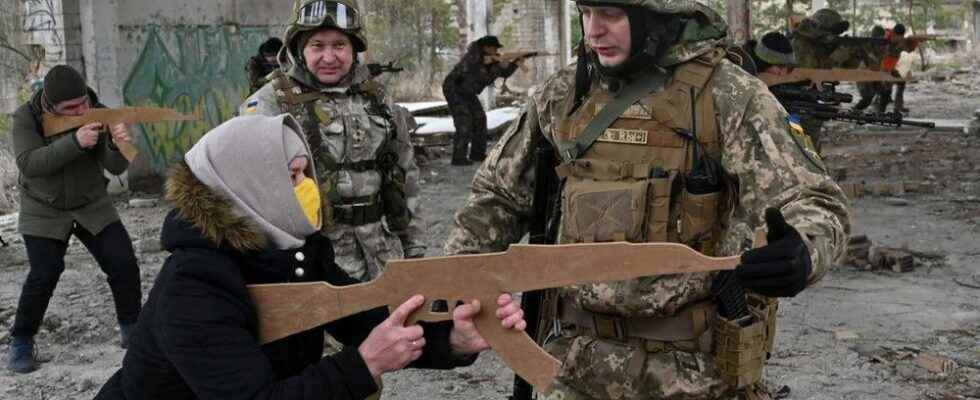On the third day of its invasion, the Russian army tightens its grip on Ukraine. The fighting won this Friday, February 25 the outskirts of Kiev, while, in the rest of the country, Russian troops reached other major cities such as Kramatorsk (east), Kharkiv (northeast) or Mariupol, the main port from the east of the country. “The forces are doing everything possible” to defend Ukraine, insisted Ukrainian President Volodymyr Zelensky, who had decreed, the day before, general mobilization to counter the Russian advance.
If the indisputable superiority of the Russian army questions the ability of Ukrainian troops to cope sustainably, a military victory for Moscow could be just the beginning of trouble for Putin. “We must not underestimate the will of the Ukrainians to fight and their capacity for individual response, underlines Mathieu Boulègue, researcher specializing in Eurasia at Chatham House, a London think tank. The Ukrainians will not let go of their territory and are willing to die to defend it.”
“Neutralize the occupier!”
As the United States learned the hard way in Afghanistan, invading a country and overthrowing its government is one thing, controlling it is another. A fortiori Ukraine, the second largest country in Europe after Russia and with a population of 42 million. A poll taken in December 2021 showed that one in three Ukrainians would be willing to take up arms against a Russian invasion. And 21.7% of the population say they are inclined to join a civil resistance movement.
For its part, the Ukrainian Ministry of Defense has already called on civilians to take up arms. “We ask citizens to inform us of enemy movements; make Molotov cocktails, neutralize the occupier!”, He wrote in a message posted on Facebook on Friday. The day before, the latter had already urged “those who have combat experience” to join the territorial defense battalions. These units set up by the law on national resistance adopted at the beginning of January are made up of civilians trained by the army to carry out guerrilla operations.
Ukrainians take part in a territorial defense battalions military exercise outside Kiev on February 19, 2022.
Sergei SUPINSKY / AFP
During the Second World War, thousands of Ukrainians had already resorted to guerrilla tactics to resist against Hitler’s and then Stalin’s troops. More recently, insurgent resistance to the Soviet invasion of Afghanistan in the 1980s led the Red Army to withdraw.
“Long and hideous period of retaliation”
Thursday, the Russian president assured not want “occupation” of Ukraine, but will he have the choice? “Even if Russian troops managed to defeat the Ukrainian army, I don’t think Putin could keep control of the country,” said Glen Grant, an analyst at the Baltic Security Foundation who advised Ukraine on its military reform. would not accept it and it would require far too many Russian soldiers to maintain its hold on the country”.
Especially since the question of support for a potential Ukrainian resistance is beginning to be raised in Western chancelleries, according to several Anglo-Saxon newspapers. “Their help could be very useful,” said General Dominique Trinquand, military expert and former head of the French mission to the UN. In particular, they could provide weapons, equipment and even training in neighboring countries.”
“A lightning war would be followed by a long and hideous period of reprisals, revenge and insurrection, had already warned the British Prime Minister, Boris Johnson, on Saturday February 19, during the Munich conference on security. If Ukraine is invaded by brute force, I don’t see how a country encompassing nearly a quarter of a million square kilometers could be brought under control.”
Ultimately, the risk of seeing the death toll rise among Russian soldiers is great. With, as a corollary, the consequences that this implies for public opinion in Russia. “If the Russian army becomes bogged down in Ukraine and that results in many casualties, Putin will inevitably face a significant political cost,” said Glen Grant.
